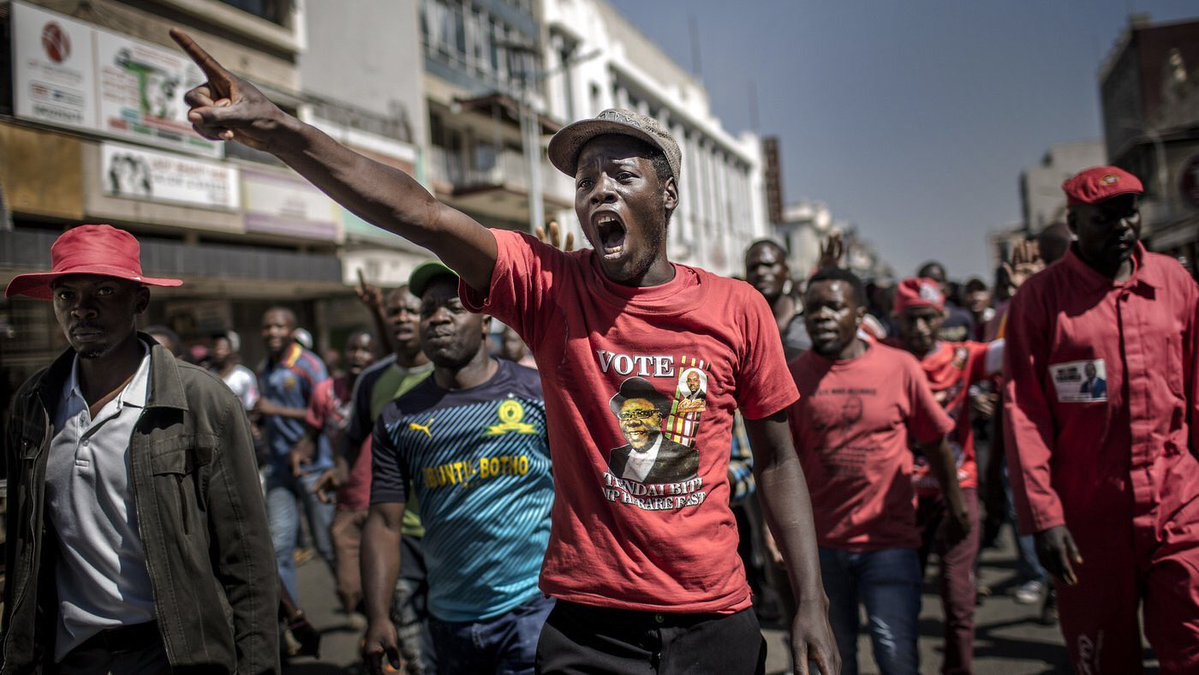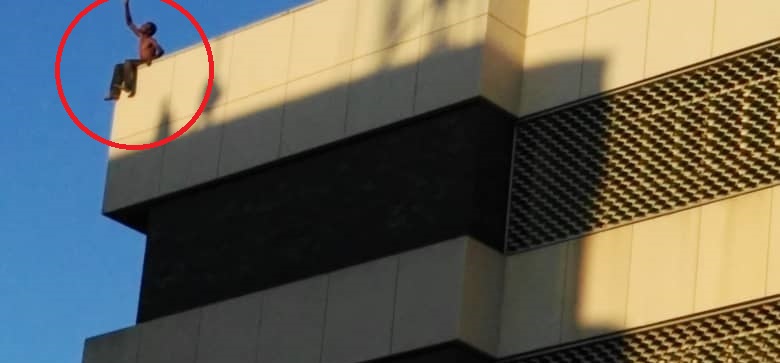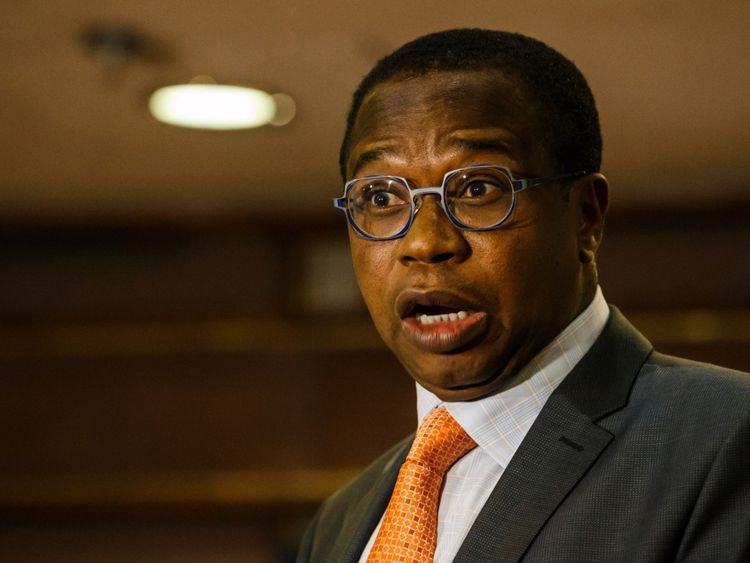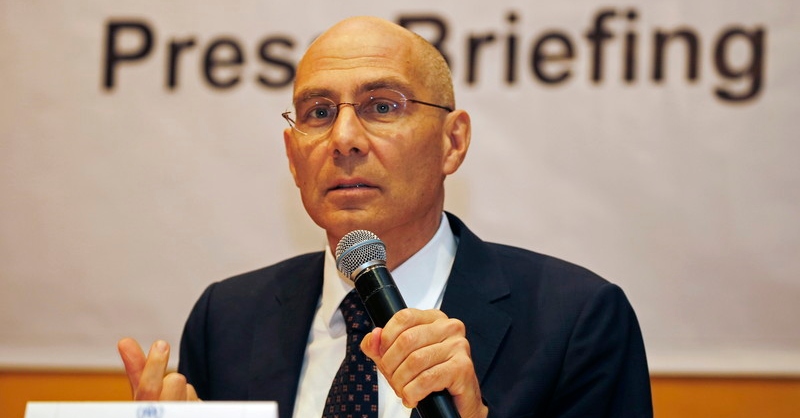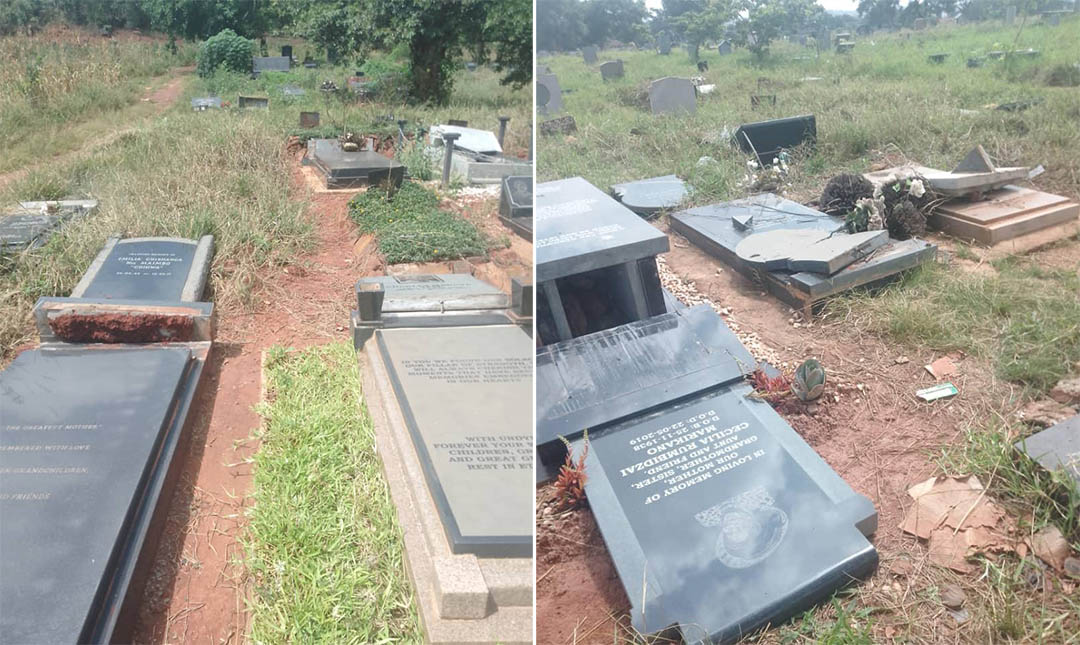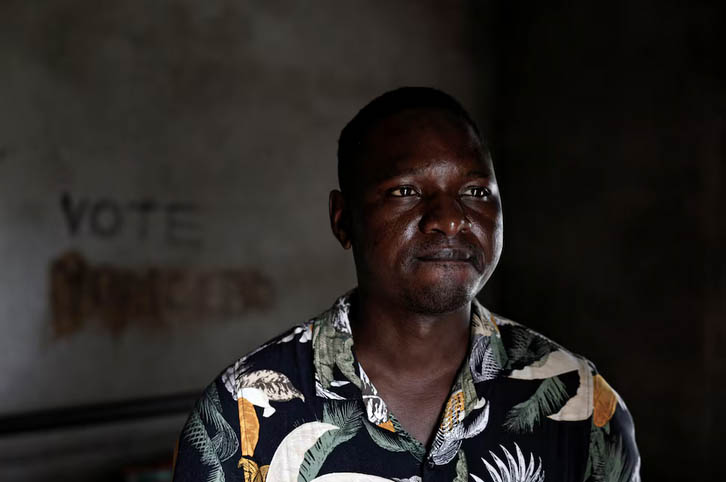HARARE – Police on Tuesday banned planned protests by the Zimbabwe Congress of Trade Unions (ZCTU) against a new tax on money transfers partly blamed on a spike in prices.
Prices of basic goods like cooking oil and flour have shot up since a 2 percent electronic money transfer tax was imposed on October 1. Businesses and ordinary people have objected to the tax, arguing that it eats into earnings while funding profligate government spending.
ZCTU president Peter Mutasa told reporters that the labour movement had called for a strike on Thursday over the tax.
The ZCTU is also protesting a central bank decision to separate foreign currency accounts from bond note accounts, whose effect has been de-dollarization according to economists. The bond note’s value has tanked.
Police spokesman Paul Nyathi said the protest would not be allowed to go ahead because of a standing order outlawing public gatherings in the capital after a cholera outbreak that has killed 50 people and infected more than 10,000 others.
The opposition has accused police of selectively applying the ban, saying supporters of President Emmerson Mnangagwa have been allowed to hold rallies in the capital while those for the opposition have been stopped.
With post-election violence two months ago in mind, the government appears resolved to keep a lid on demonstrations in opposition urban strongholds fearing they could spiral into violence, analysts say. At least six people died in that violence which followed an army crackdown.
Although the labour movement has been weakened over the years due to high unemployment, it still maintains strong links with the opposition Movement for Democratic Change, whose supporters would be likely to take part in the protests.
Nyathi said “the cholera outbreak is not yet over, particularly in Harare” and warned potential protesters that “if anything turns nasty those organising the demonstrations will be held responsible.”
Vice President Kembo Mohadi later told reporters that the government had deployed monitors around the country and that oil firms and sellers of basic goods who hike prices or demand dollar payments would lose their licence.
Some businesses are now demanding U.S. dollars only while others have suspended sales as the value of the surrogate bond note currency continues to plunge on the black market.
After losing their savings to hyperinflation in 2008, worried citizens are stocking basic goods while others buy bricks and shares on the stock market to preserve the value of money in their banks.
Zimbabwe, which adopted the U.S. dollar after hyperinflation left its own currency worthless in 2009, is gripped by acute shortages of cash dollars.
